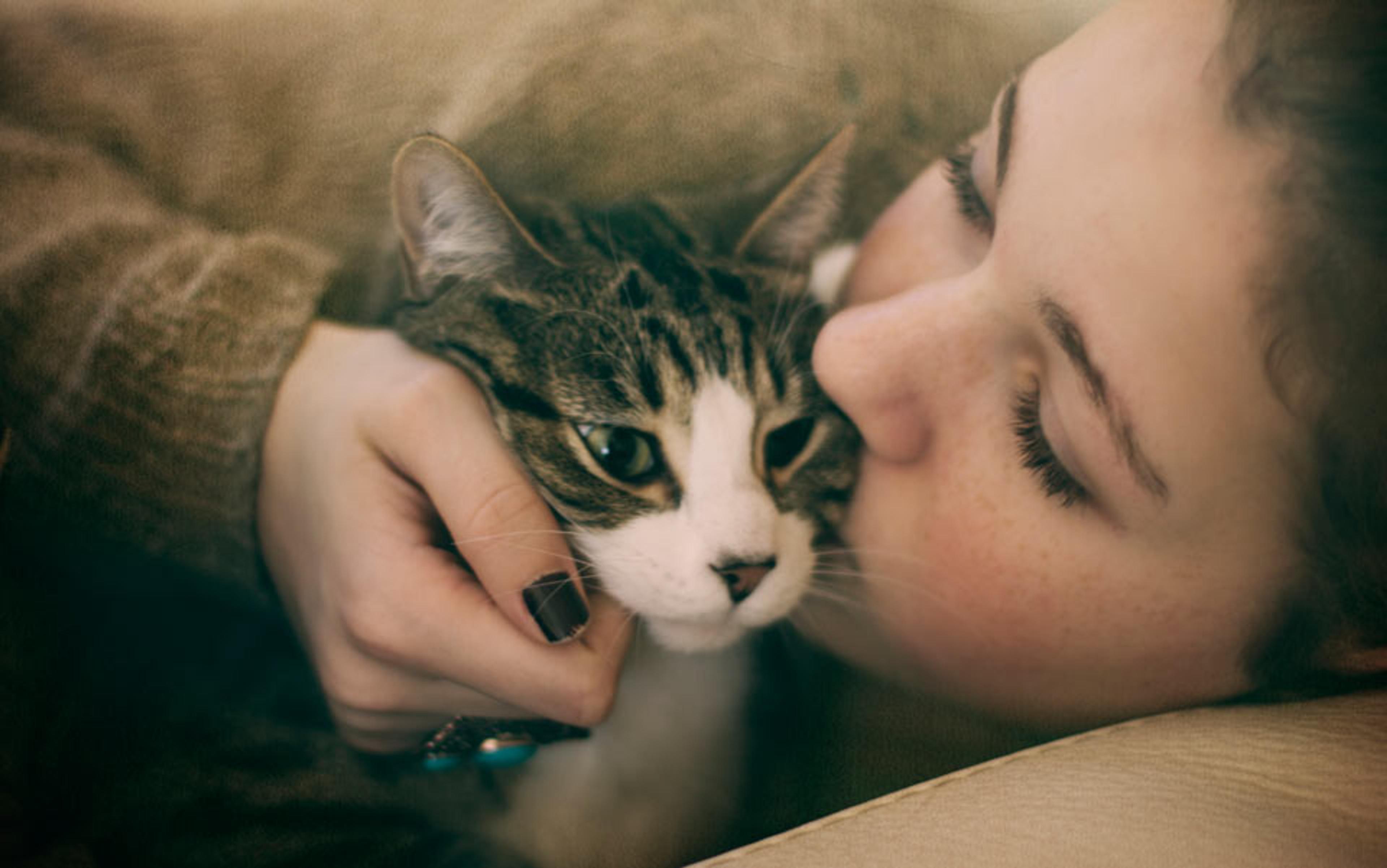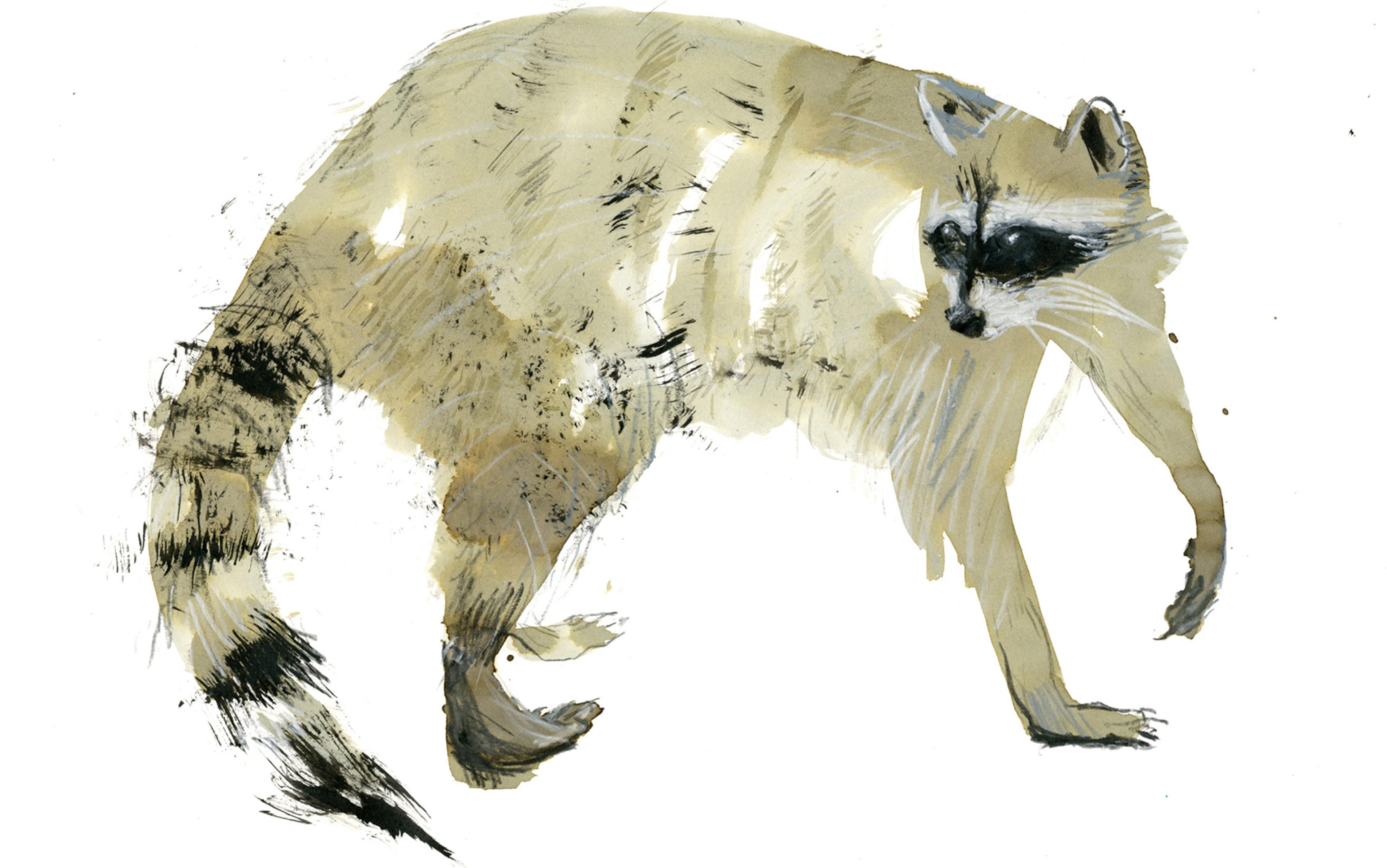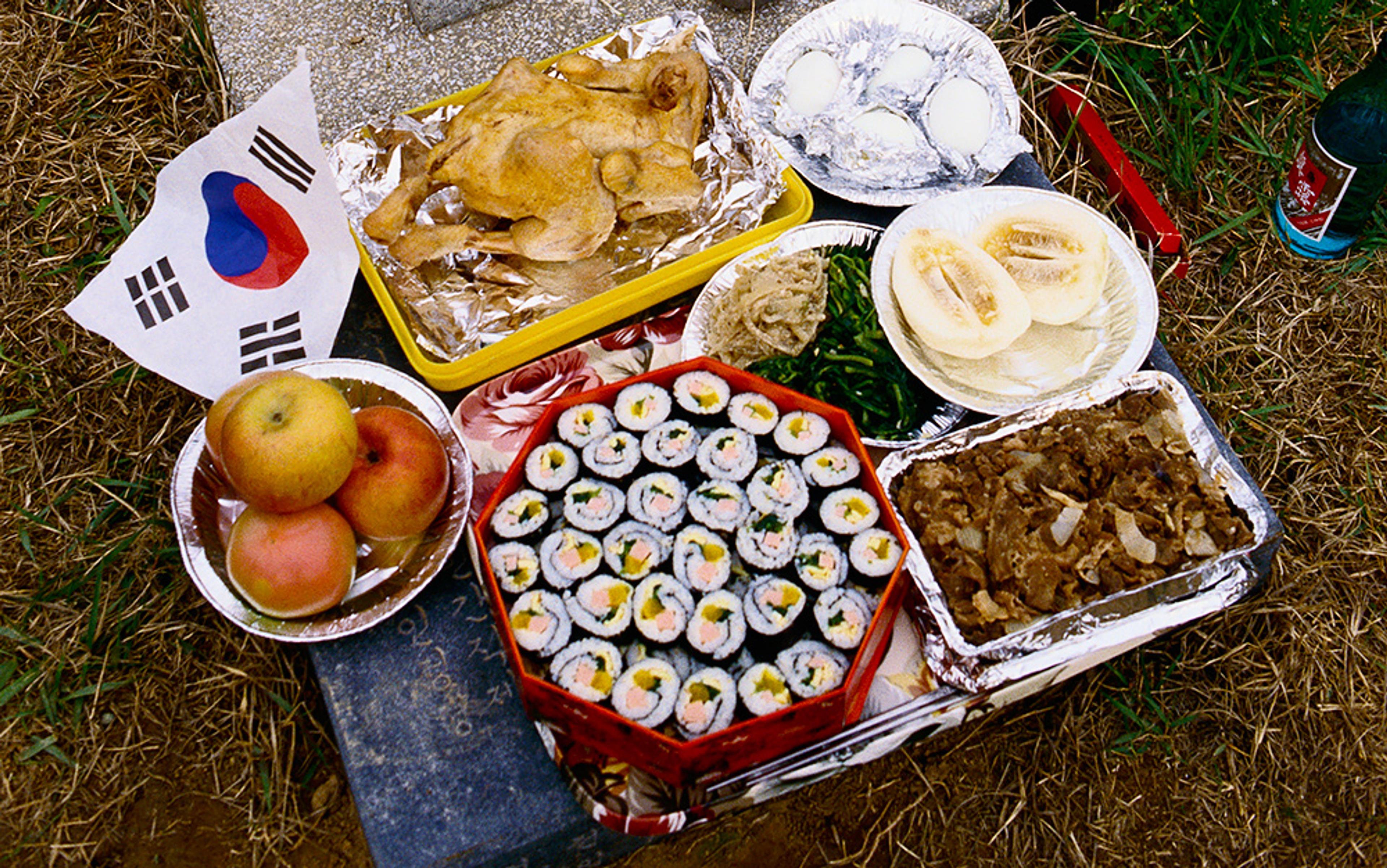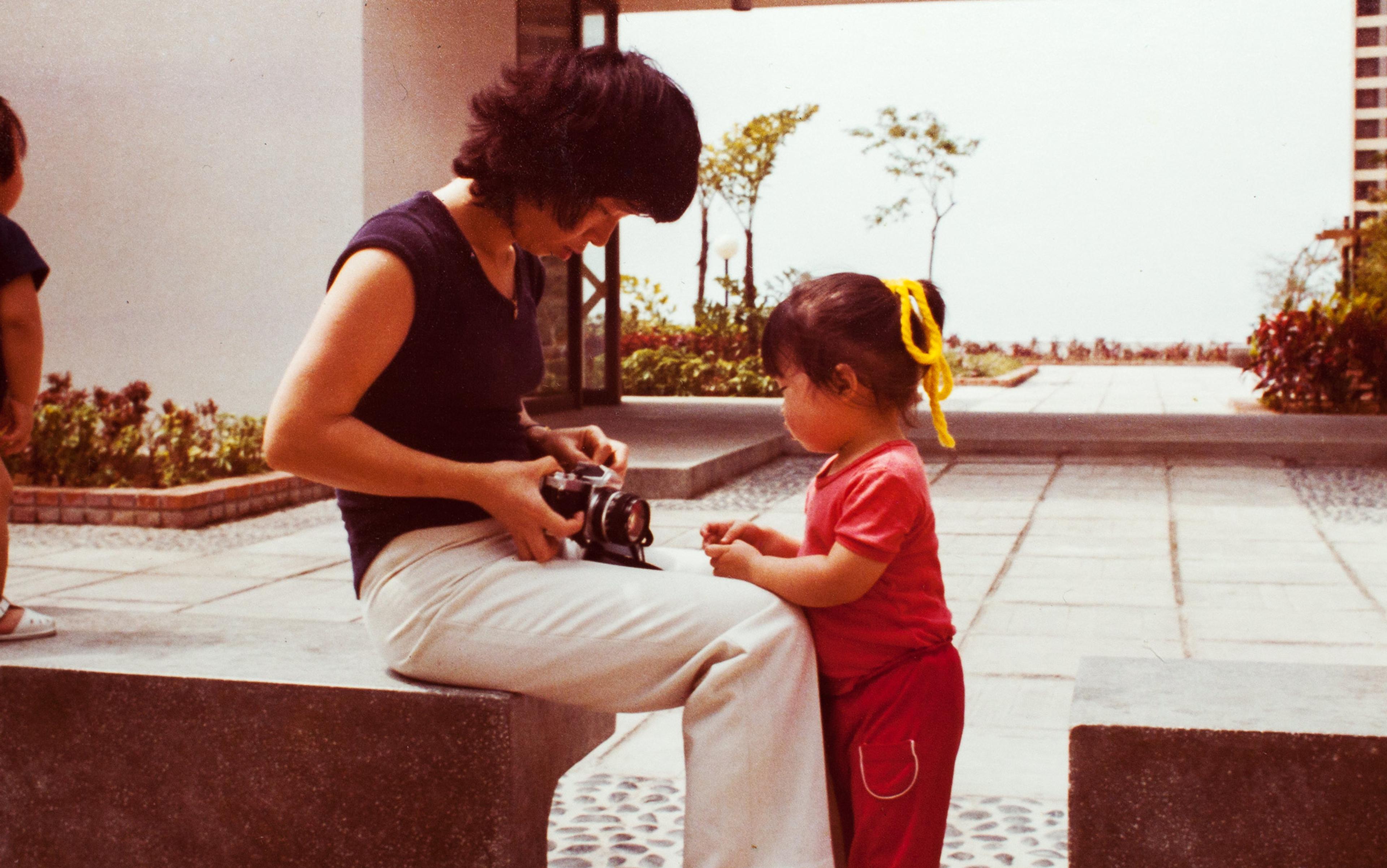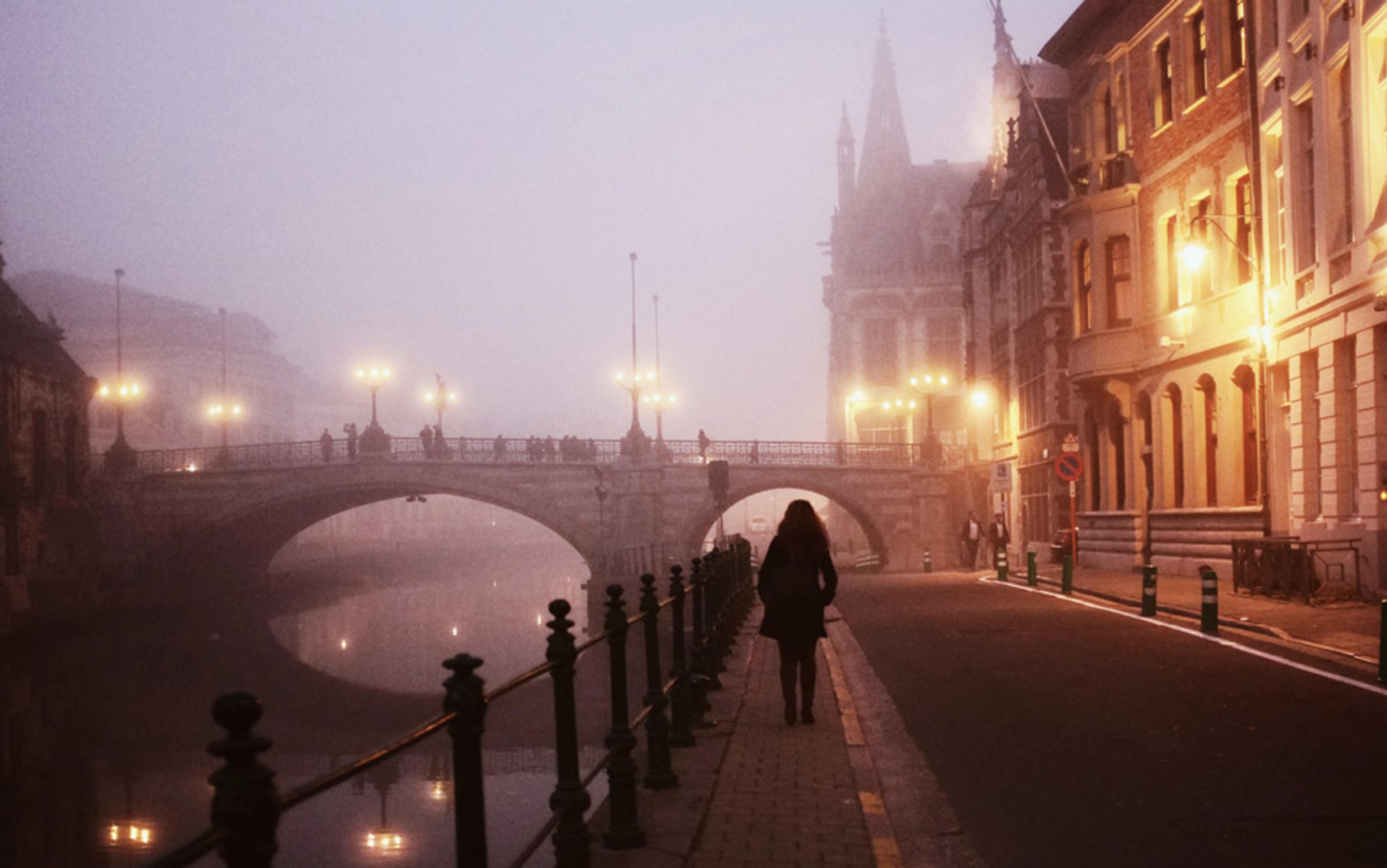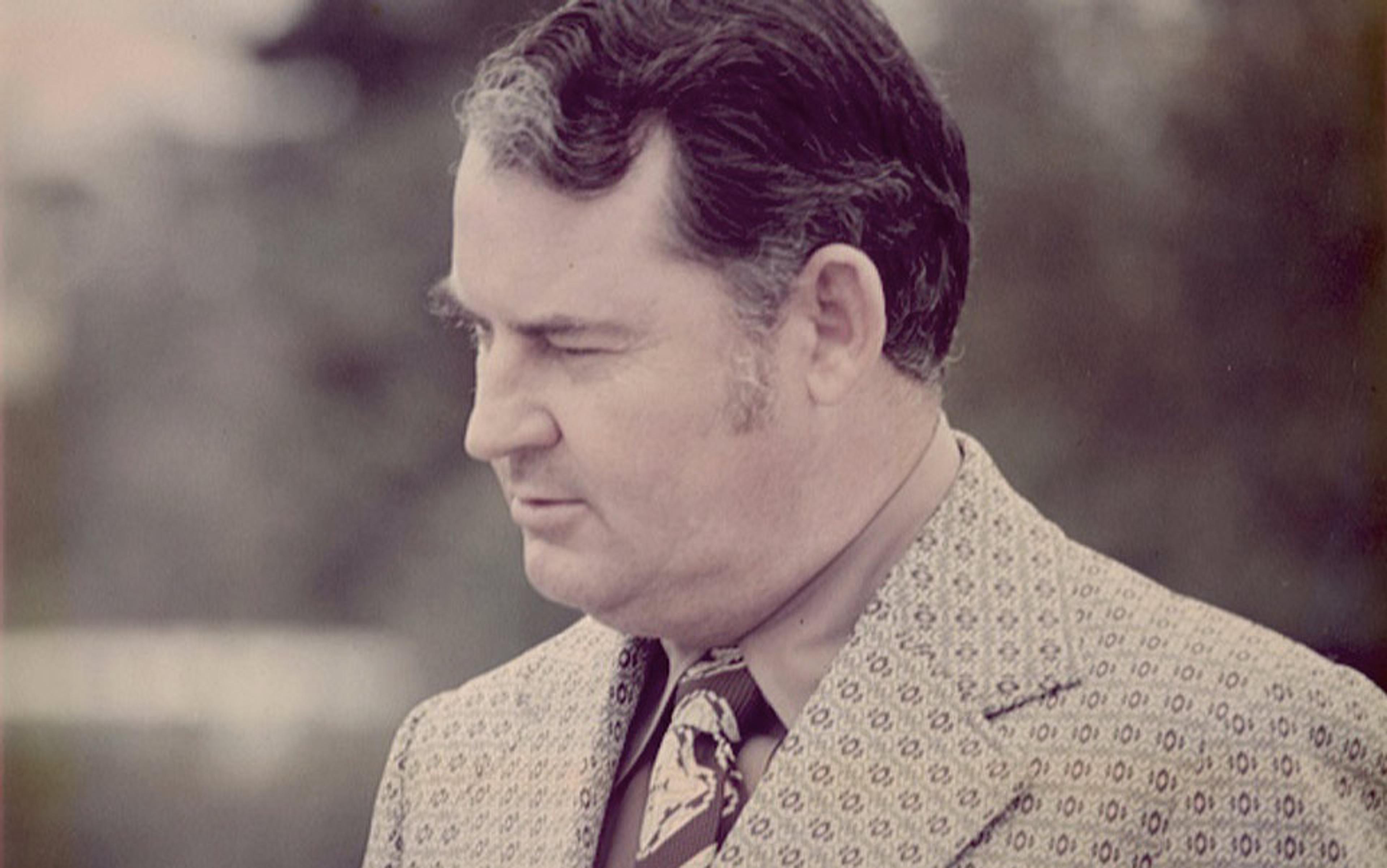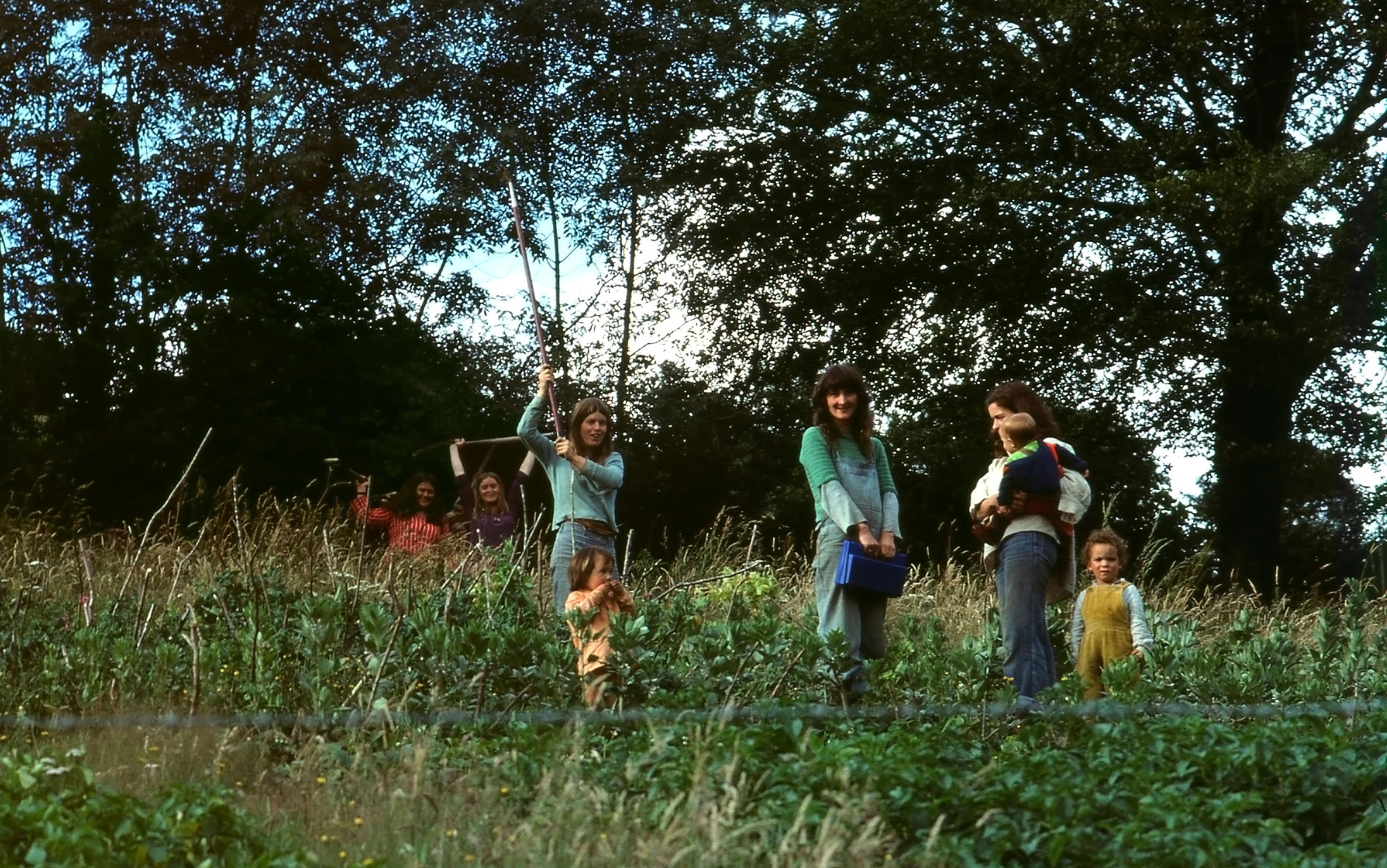I loaded Monster, our puppy, into the car and collected my daughters before school finished. Despite the early start, we hit the inevitable outrage that is Chicago’s Friday afternoon traffic. The girls hunted for a radio station they deemed acceptable, argued every time a song ended, and finally hit a pretty good groove with a Top 40 station. It took an hour before we were released from the Dan Ryan Expressway and could cruise gratefully up into the Skyway.
We were headed to Kalamazoo, Michigan, to visit Marie, an old friend of mine who had just moved there after three years teaching English in Korea. The visit was a tall order for the girls and the dog: lots of time in the crate for the puppy, and a long drive with no kids waiting at the other end for Celeste, who was almost 12, and Ginger, who was seven. But they liked to go on trips with me. It was something we had always done together. Ever since they were babies, the girls had flown with me to New York City, where my parents lived. They loved hotels and road food. They could inhabit the back seat of our small car for four hours at a stretch. Ginger used to get scared when the plane was getting ready to land so Celeste invented a game called ‘pink boat going down’. They would both pick out a boat below them in New York Harbor and talk to it, guiding it into port as the plane descended.
When Celeste and then Ginger were toddlers, the airport was a play space: long corridors to run in, stores with bright wares to marvel at, snacks we rarely ate at home. It was an escape from our regular lives, a place between worlds, without obligation. We have a photo of Ginger at around two, dressed in her favorite outfit, standing in rhapsody in front of a rack of postcards in the airport gift shop. Her wispy red hair forms a cloud around her head. All three of us felt the magic of those moments, and we mostly felt them together.
But I could have taken this trip to Kalamazoo by myself. The girls were older now. The visit might have made more sense as a meeting between old friends. Marie and I could have indulged in late-night reminiscences and wine-infused confidences, and perhaps a shopping trip to furnish her new apartment. Still, Celeste and Ginger wanted to come. And I liked their company.
Celeste, in particular, liked to keep an eye on me. A couple of years back, I travelled alone to a conference in San Diego and she called me frequently on her new cellphone. On the last night of my trip, I had been out late at a party and hadn’t heard my phone ringing. Celeste hadn’t been able to reach me. She was outraged when I got home and explained what had happened. I think she thought that I had gone AWOL and it scared her. Better to keep a close watch, to make sure I didn’t do it again.
She didn’t have kids, so she wasn’t aware of the way expectations crest and crash
The real lure of this trip for the girls, though, had little to do with me or Marie. It was a cat. Marie had told them that they could help her adopt a new cat to keep her present one, Tobey, company. The girls felt that it was their special mission to ‘Help Aunt Marie get a new cat,’ as they solemnly put it. They knew that she lived alone and that she loved cats: she had, at some trouble and expense, brought Tobey back with her from Korea. Both Ginger and Celeste love nothing more than to go to the local Humane Society to visit the animals there. With our dog and existing three cats, our household is at capacity. For them, this trip was vicarious acquisition.
I was aware of some static in this plan, however. The last couple of conversations I’d had with Marie, she’d been excited about our upcoming visit, but less than completely enthusiastic about obtaining the second cat. I felt like she wasn’t telling me something. So, during our last phone call before the girls and I were to leave home, I asked Marie directly if she planned to get a cat. I explained to her that the girls were particularly looking forward to that part of the visit. She told me she was still planning on letting them help her adopt a cat during the visit.
I have known Marie since high school. She can be very indirect and, at the same time, pretty stubborn. I could tell that she was wavering on the cat. And she didn’t have kids, so she wasn’t aware of the way expectations crest and crash. But I didn’t want to confront her, so I let myself be reassured that she was as committed to acquiring the cat as we were.
The drive to Kalamazoo was much longer than I thought it would be. But then, I had been comparing it with the distance between Marie and me when she was in Korea. I did not think about how vast the Midwest can be. Lake Michigan just seemed so much smaller than the Pacific Ocean.
The girls and I stopped a lot. We walked the dog, went shopping, ate, and walked the dog again, managing, as we tend to do, to have a pretty good time on the road. The long shadows of a September afternoon started to fall as we drove east and reached Kalamazoo, Battle Creek.
It was well past dark by the time we arrived. We greeted Marie and took the dog for another walk around the block, putting him back in his crate once again so he couldn’t chase Tobey around the house. Then all three of us passed out on the air mattress that Marie had inflated for us in a spare room in her apartment full of unpacked boxes.
The next day, I woke early and took the dog on a long walk. I searched Marie’s neighborhood for some food the girls would eat. Marie is a vegetarian and keeps only the really healthy stuff that I would probably try to eat if I lived by myself: wholegrain bread, flavored tofu. Last night, the girls had assessed her cupboards and fridge. They’d eaten the organic ice-cream that she’d offered but were politely appalled by the absence of anything else they recognised as edible.
When I returned at 10am, the girls were dressed and ready to go find Aunt Marie a new cat. Celeste had carefully combed her long, curly blonde hair. She was dressed in regulation 12-year-old-girl clothing: a T-shirt, skinny jeans, and Ugg boots. Ginger was dressed in her own standard-issue weekend clothes: pajamas and sneakers. But Marie was still asleep. I made us a little breakfast and convinced the girls to go for a walk with me.
We leashed the dog again, and headed out. As we cut through Marie’s back yard to the alley, Ginger skipped ahead. Celeste linked her arm in mine. ‘This neighbourhood is a little scary,’ she said, in the low tone she used when she told me grown-up things. I looked around. True, the houses were a little run down. Some of the yards on Marie’s block were overgrown, and one had what must at one time have been a ‘For Sale’ sign, with only the frame remaining.
Just as I was wondering when Celeste might have developed an eye for urban decay, the leash went slack. Monster had slipped his collar and was racing down the street.
‘Mommy!’ Celeste gasped in horror. Ginger stopped in her tracks.
‘Hold on,’ I said. ‘Don’t run after him.’ In the spare purse we call ‘the dog bag’ I found some canine treats. ‘OK, let’s each take one and see if he’ll come to us.’
Monster ran into the four-lane road in front of Marie’s apartment building. He kept sidling close to the sidewalk and then dashing away before we could capture him, clearly enjoying himself. A couple of cars swerved to avoid him, the drivers gesticulating and rolling their eyes. A guy in a bright yellow Hummer flipped us the bird. Finally, Celeste lured the dog down a side street, away from traffic.
He ran down an alley and into a back yard, where a large brown dog was chained to a post. As we came down the alley, the larger dog flipped our puppy on his back. The girls gasped. Ginger grabbed another treat and edged down the driveway, well out of range of the chain. A moment later, Monster got up and took another run at the other dog, which bared its teeth. For a minute, there was a pile of dog: legs waving, teeth snapping. Then Monster trotted over to Ginger, shook himself and left the chained dog to bark in a frenzy.
We were quiet on the blocks back to Marie’s apartment. Close to tears, Celeste clutched the leash. Ginger led the way, proud of her role in Monster’s rescue. The neighbourhood now did seem subtly menacing to me: the dogs fierce in their yards, shards of glass on the sidewalk waiting to puncture bike tires or the knees of children.
The day spiralled. Marie got up after noon and insisted on taking us on a tourist boat ride up the Kalamazoo River. It took over an hour, and Ginger was getting dangerously hungry. We took evasive action and repaired to a diner. Ginger was young enough to let herself forget the trip’s agenda and delight in the small pleasures of the day. She loved the feeling of the small motorboat accelerating up the river, marvelled at the fish jumping out of the water upstream. At the diner, I took a picture of her crying with happiness at ‘the best BLT I have ever tasted’.
But Celeste could smell a rat. All afternoon, she kept asking when we were going to the animal shelter, and when the answer she got was always, ‘Later,’ she sunk into a grim mood.
It was 4.30pm when we finally arrived at the animal shelter, half an hour before closing time. We rushed around the small space, meeting cats in cages and plastic enclosures. The rules here were pretty lax: we were allowed to pick up any animals we wanted to.
In the past, whenever our family or friends had been ready to adopt a pet, only one trip was necessary. If you wanted a cat and you went to a place with a lot of them, one of them would win your heart. Our friend Gloria had sworn she wanted a Russian blue kitten, but after a visit to the Wisconsin Humane Society, she took on a black and white tabby. ‘She needed me,’ Gloria said when we teased her about how not-blue her new cat was.
At the Humane Society in Kalamazoo, Marie wasn’t charmed by the small balls of fluff that Celeste and Ginger offered her. ‘Maybe a full-grown cat who won’t get adopted quickly,’ she said.
There were lots of full-grown cats: needy ones, who wound themselves around our legs; aloof ones who climbed as high as the enclosure would let them and stared down at us with wild green eyes; aggressive ones who yowled and even slashed at us; charming ones who sat in our laps as if we were well-acquainted. Ginger fell in love with a one-eyed tiger named Paloma. She sat next to her on the floor, stroking her orange fur and talking in a low voice.
Her face was like one of those weather maps on the evening news. Fast moving systems passed across it: possibility of storm
Celeste focussed her attention on Marie. She pointed out likely candidates, and then listened respectfully to Marie’s reasons for not selecting them. Aggressive cats would fight with Tobey. Needy ones would take all her attention away from him. Marie was like Goldilocks, finding fault with each bowl of porridge. But even Goldilocks found a bowl, a chair and a bed to suit. Celeste listened carefully, and then brought Marie more candidates.
I could tell that Celeste was particularly taken with a slim black and white cat called Charlie, who peered down at us from his perch on the cat tree. He looked a lot like the cat we’d had when she was born, who lived until she was about eight. Celeste clucked at this new black and white cat and lured him into her arms. He stayed still. She brought him over to Marie. Marie held this cat for a long time.
Then the announcement came over the speaker system: 10 minutes left. Celeste and Ginger looked over at Marie.
Marie sighed and looked down at Charlie. ‘I just don’t think I can make a choice, not today.’ She shrugged and laughed a short laugh. ‘OK, girls? I’m sorry.’
Ginger shrugged. ‘OK,’ she said. She hung her head and came over to me, flinging her arms around my hips and burying her face in my jeans. ‘No Paloma?’ she said, her lower lip jutting out. I drew her in close and looked over at Celeste.
For a minute, it looked like Celeste was going to cry too. Her face was like one of those weather maps on the evening news. Fast moving systems passed across it. She was sad, disappointed, and angry: possibility of storm. I had witnessed all these faces before.
But then Celeste did something new. She rearranged her expression into an impassive mask and rolled her eyes. ‘Whatever,’ she said. Ginger, tears in her eyes, threw her arms around Celeste’s waist. Celeste put a hand on Ginger’s head, but her expression remained remote.
I had seen that expression many times before, had been the reason for her to roll her eyes and say whatever. I had rolled my eyes back, fought with her, thrown up my hands, tried to hold my tongue. But what I hadn’t seen those other times was what came before that face. I had missed the weather map with its shifting fronts of emotion. I hadn’t realised how much the mask of adolescence was just that — a mask — and how much Celeste put it on to protect herself.
Once, when she was two, we’d been at a beach resort with my mother, waiting in line for ice-cream behind a group of bikinied teenage girls. My mother had nodded to me, gesturing at Celeste. ‘Look how she’s looking at them,’ she’d said, her voice heavy. ‘Won’t be long till she’s one of them.’ At the time, Celeste’s worship of bikini-clad young girls was just a matter of her love for the singer Miley Cyrus and some high-school babysitters. But the dread in my mother’s voice had been about her own memories, my sister and I subjecting her to that same eye-rolling disdain as we pushed off from her, trying to become our own selves.
Now, of course, Celeste was trying to do that, too. She was inspired and angry, ambitious and terrified in turns. Her eye-rolling alternated with a sweet solicitude towards the adults she trusted. She would walk up to us and link arms with her dad or with me, or with family friends she genuinely liked. And she loved to lower her voice and engage in conversations she deemed important. She wanted to figure out how to become a teenager: how to grow up.
It turned out that I was right about Marie not being ready for a cat. It wasn’t surprising that she couldn’t tell me that before we took our trip, given the history of our friendship. But I felt like maybe I had failed the girls a little bit, letting them come on a mission with such a high possibility of failure.
Months later, both girls are still quite vituperative on the subject. Ginger has declared that she will never again return to Michigan or Aunt Marie’s apartment. Celeste carefully screens possible trips to see if she really wants to go. For the first time in our lives together, she is inclined not to.
I was sorry to drag the girls on such a long drive only to have them be disappointed. Maybe it was selfish of me to bring them, knowing that I would enjoy their company. But I feel lucky to have watched Celeste put on that mask. It helps me feel a little less like she is just annoyed with me. Instead, I got to see what the mask hides: the prodigious work she does every day, just to be who she is busily becoming.
Names and locations have been changed in this piece.
